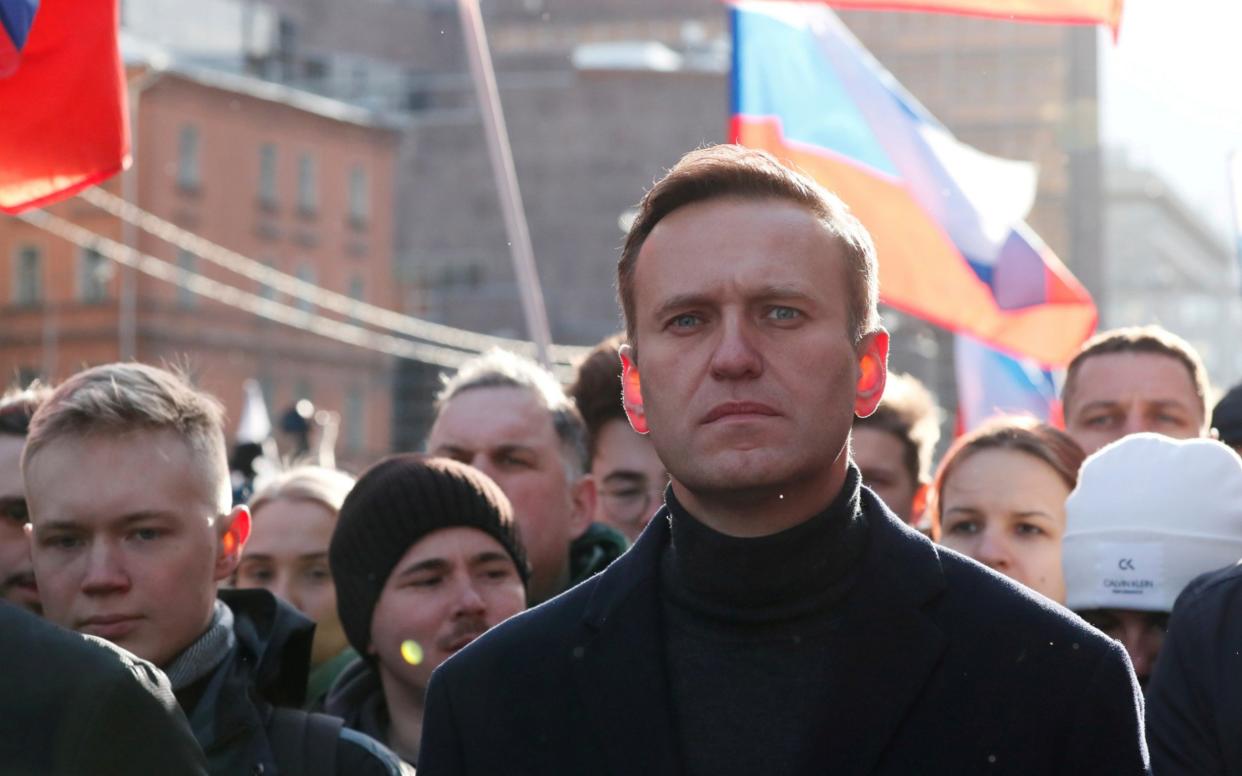Vladimir Putin dismisses accusations that Alexei Navalny was poisoned as Russia launches probe

Vladimir Putin has dismissed accusations that Alexei Navalny was poisoned as “hasty and unfounded” in his first comments since the Russian opposition leader was taken suddenly ill a week ago.
The Russian President said he would back a “thorough and objective investigation”, despite the Kremlin saying earlier it saw no need for a criminal probe.
Mr Putin’s comments came as he discussed the situation in a phone call with the Italian Prime Minister Giuseppe Conte, according to a Kremlin statement.
Doctors at the German hospital where Mr Navalny remains unconscious said multiple tests showed he had been poisoned with a “cholinesterase inhibitor”.
These are a group of chemical compounds that includes Novichok, the nerve agent used against ex-Russian intelligence officer Sergei Skripal in Salisbury.
Mr Navalny began crying out in pain during a flight to Moscow from Siberia last Thursdayy, and the plane was forced to make an emergency landing.
He was first treated by doctors in the Siberian city of Omsk, who said they found no toxins in his system, before being transferred to the Charite Hospital in Berlin at the request of his family.
Supporters said he had been poisoned because of his political activities and accused Russian doctors of working with authorities to try to cover up the true cause of his illness.
On Wednesday, the head of the Omsk clinic where he was treated demanded the German hospital provide evidence of his poisoning, and accused doctors there of making a “political diagnosis”.
World leaders including Prime Minister Boris Johnson and German Chancellor Angela Merkel have expressed support for Mr Navalny and demanded an investigation into the incident.
The US has threatened sanctions if Moscow is found to have been behind any poisoning.
Separately, Washington blacklisted five Russian institutions it believes are developing chemical and biological weapons. Moscow called the decision “groundless” and said it will seek clarification.
In his call with the Italian Prime Minister, Mr Putin mentioned Mr Navalny by name, the first time he is believed to have officially done so. When faced with questions about the opposition leader, he usually refers to “the person you have just mentioned,” among other euphemisms.

